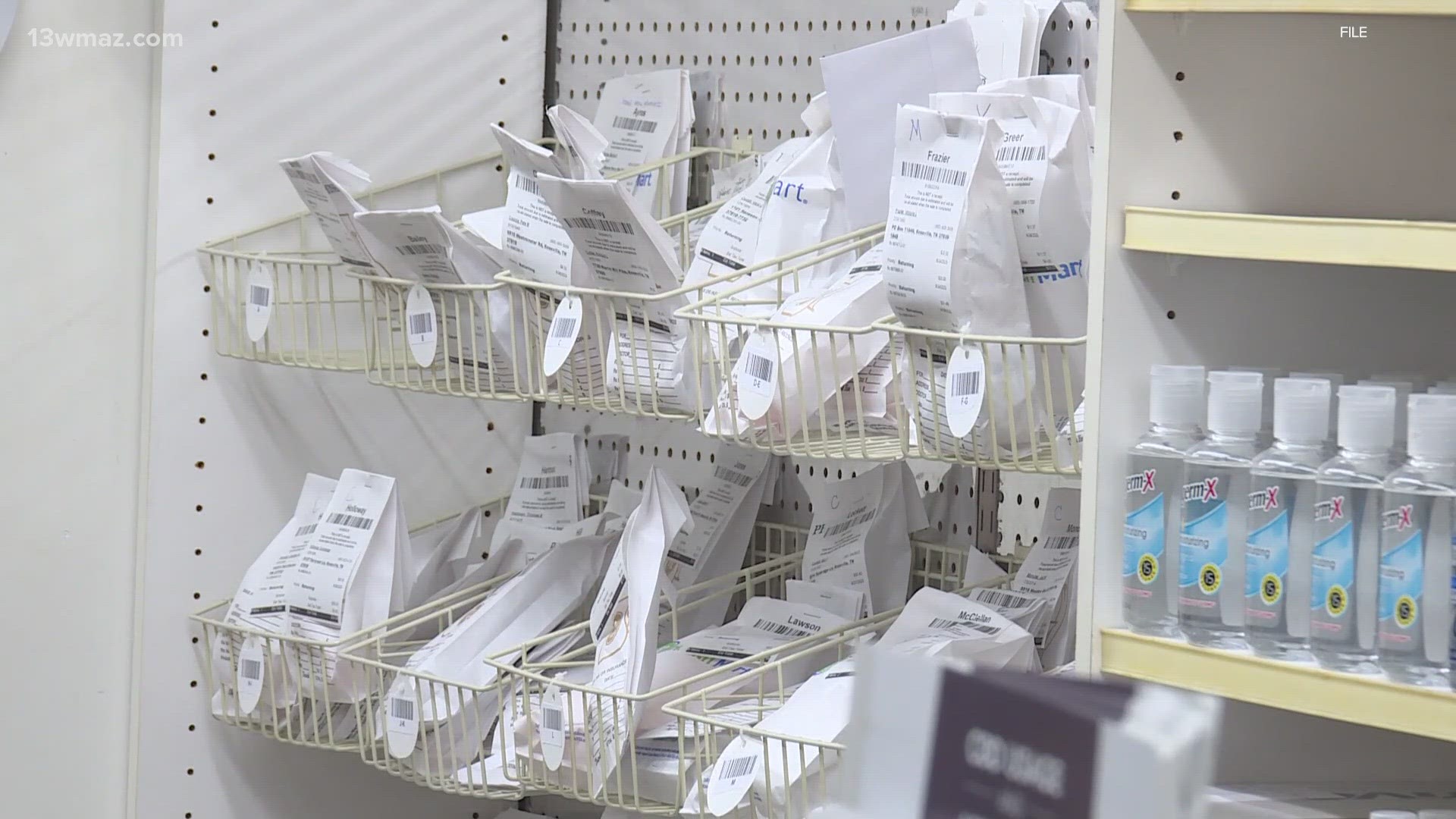WARNER ROBINS, Ga. — Editor's Note: The broadcasted version of this story aired before the update sent by the Georgia Medical Board.
The Georgia Medical Board extended its rules allowing virtual prescriptions for DEA-controlled substances, previously rescinded.
Basically, the board is returning to pre-covid protocols effective May 1.
People who need prescriptions for any controlled substances on the DEA list must see a doctor face-to-face starting that day.
Dr. Uwa Iguobadia, the pediatrician at Lifeguard Pediatrics, helps break down which kinds of medications you will need to see your doctor in person for soon.
For patients who have seizures, ADHD, or any other conditions that require medications listed on that DEA list, they must see their doctor in person to refill that prescription.
Some of those medications include amphetamines and pain medications in any form, including pills and liquids.
Those are different than ibuprofen, antibiotics and other medications you can still get through Telehealth appointments until May.
Despite what you get your prescribed medications for, you still need to see your doctors every once in a while, as your insurance mandates, Dr. Iguobadia said, "to make sure the medicine is working."
"I know it does kinda save the hassle of having to drive," Emmanuel Harrison said.
Harrison says his brother needs to get his prescription refilled regularly and can get it done easily in person.
"Take a moment to just steer away from purchasing whatever you take online," he said.
Harrison said he thinks it's safer for folks, too, and acknowledged porch thieves often steal packages delivered to your door.
"DEA-controlled medications, they have a higher chance of being abused," Dr. Iguobadia said. "If you have a prescription that you're taking the medication as prescribed, you should not have any negative or harmful side effects. It's when you now use them the way that it's not supposed to be used."
13WMAZ reached out to the state's medical board for an interview breaking down the current protocols, but the Georgia Composite Medical Board met for its monthly meeting that went on all day.
Executive Director Daniel Dorsey said in an email, "This morning, the Board voted to extend tele-prescribing flexibilities (one more time) which will allow licensees to make arrangements with their patients as needed. Effective May 1, the GCMB will no longer recognize the federal authorization of tele-prescribing flexibilities allowed through the Drug Enforcement Administration for Georgia licensees."
Dorsey shared a timeline of the board's protocols since 2022:
- "Apr. 16, 2022: Georgia’s State of Emergency was lifted. However, under the U.S. Department of Health and Human Services’ public health emergency, practitioners registered with the Drug Enforcement Administration could issue prescriptions for all schedule II-V controlled substances to patients for whom they have not conducted an in-person medical evaluation, provided certain conditions are met. At the time, the GCMB continued to recognize the federal authorization for the tele-prescribing of controlled substances without an in-person exam as long as it was allowed by the HHS and DEA and practitioners meet the criteria set forth in the DEA policy.
- May 11, 2023: The federal public health emergency expired, but the DEA continued to allow the tele-prescribing flexibilities of controlled substances while it worked on an updated rule.
- May 25, 2023: The GCMB discussed the DEA extension and decided to continue its previous position on the issue.
- Oct. 6, 2023: The DEA made an announcement that it would extend telemedicine flexibilities regarding the prescribing of controlled substances through Dec. 31, 2024.
- Nov. 2, 2023: The GCMB discussed the second extension by DEA and raised concerns about how far out the new extension is. However, the issue was tabled for additional information.
- Dec. 7, 2023: After robust discussion on this issue at the GCMB’s most recent meeting (and at previous meetings), the Board voted that effective Jan. 1, 2024, the Board's previous position on the flexibility allowed through the Drug Enforcement Administration's telehealth prescribing policy during and after the COVID-19 pandemic will be rescinded."
Dorsey added "Although the GCMB cannot give legal advice, it is developing some answers to frequently asked questions to provide more clarity as well, which should be published after its next meeting (Feb. 1)."
Get more news and information from 13WMAZ by downloading our 13WMAZ+ app on our Roku and Amazon Fire Stick devices.
This allows you to watch more 13WMAZ on-demand and access your favorite 13WMAZ shows like Central Georgia Focus and our More Than a Number special.

